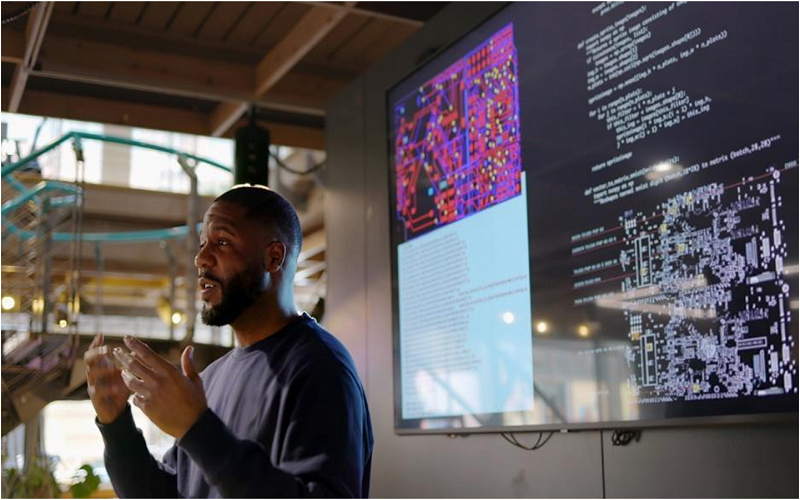Software engineering is a field that demands continuous learning and development. Software developers need to engage in lifelong learning in order to stay ahead of the curve and remain competitive in today’s changing world. This dedication not only keeps their abilities current, it also opens doors to new job paths, improves problem-solving abilities and encourages a closer connection with the IT community.
There are several important factors that make lifelong learning essential to software engineering success.
Innovations in technology

Technological breakthroughs are not just occasional events in the field of software engineering, they drive the industry. Technology is advancing so quickly that software programmers must stay up-to-date or get left behind. Subjects like machine learning, blockchain and artificial intelligence have evolved from trendy buzzwords to essential components of software engineering.
A dedication to continuous education provides engineers with the skills and knowledge necessary to stay current with these developments, ensuring their continued relevance in the field. Keeping up with the latest developments might also open doors to working on innovative and exciting new projects. The rapid advancement of technology highlights the need for lifelong learning for software professionals looking to maintain their edge.
Obtaining the right credentials
Studying to gain the right credentials will put professionals in the position to succeed. Enrolling in reputable computer science degree programs, such as Baylor’s Online Masters in Computer Science – Software Engineering track, equips students with essential skills for cutting-edge technologies. This fully remote program offers a self-paced curriculum, one-on-one support, personalized assistance from professors, and up-to-date course material. Designed for those seeking to enhance their knowledge and professional skill set, a Baylor Computer Science online program ensures that students can become software engineering experts without needing on-campus presence. Upon completion, graduates emerge highly qualified, more employable, and are more likely to feel ready for success in the workforce.
Comprehending sectoral patterns
One essential skill in the ever-evolving field of software engineering is adaptability, and this is inextricably connected to the idea of continuous learning. Software developers become more able to adapt with each new language, framework or development process they study. Their ability to swiftly recognize and adopt new trends before they become the standard in the market is a result of their flexible skillset.
Being adaptable involves more than merely making changes in response to new knowledge. It’s about using that data to predict the direction of the industry and align one’s career with these trends. It involves staying in control of your career and making sure you’re always in step with the pulse of the market by navigating it with intelligence and foresight. Lifelong learning fosters flexibility, a crucial trait in the fast-paced digital world of today.
Improved problem-solving capabilities
Software developers that are committed to lifelong learning are better able to think creatively and solve problems. Through continuous education in a diverse range of technologies, approaches and ideas, engineers are able to think creatively and provide original solutions to challenging issues. They gain the ability to look at problems from several perspectives, which sharpens their judgment and gives them the mental agility they need to succeed in their positions.
In the industry, engineers that exhibit this dedication to learning stand out. Their broad perspective and creative thinking can help in the creation of new software, the optimization of current systems, or the discovery of workable solutions for software bugs. This sort of cognitive agility, fostered by ongoing education, has the potential to be extremely valuable in the field of software engineering.
Opportunities and career advancement
Professional progress in software engineering is accelerated by lifelong learning. These days, being proficient in just one programming language or platform is insufficient; having a broad range of skills is essential. With the support of lifelong learning, software engineers may move easily into other jobs, take on leadership responsibilities, or even go into complementary fields like cybersecurity or data analysis. Lifelong learning increases earning possibilities as well as opening up new opportunities.
Software engineers can make sure they are not just keeping up with the industry, but also leading it by viewing learning as a lifetime path. A willingness to learn about new technologies, tools and techniques is frequently a differentiator. Software engineers can, therefore, use continuing education as a stepping stone to success and more advanced employment options.
Keeping up with security knowledge
Cybersecurity in the field of software engineering is always changing, much like the technologies that drive the sector. Software engineers must stay one step ahead of ever-evolving cyber threats. In this, lifelong learning becomes a crucial component. It provides engineers with the most recent tactics and industry best practices to strengthen their software against new threats. By keeping up with the latest developments in cybersecurity, engineers can protect their software and data by promptly identifying and mitigating any vulnerabilities.
This ongoing attention to detail and dedication to expanding security expertise makes engineers invaluable resources in the industry’s never-ending fight against cybercrime. As a result, lifelong learning provides software developers with a barrier against the changing hazards in the digital world, in addition to being a means of improving their skills.
Comprehending industry-specific needs
The significance of lifelong learning includes comprehending the distinct requirements of many industries. Different industries have different software needs. Software engineers can obtain the knowledge which is essential to developing unique solutions that meet these needs by undertaking ongoing education and exposure to these varied domains. They can offer value beyond functionality by filling the gap between industry-specific requirements and general software practices.
In addition to improving the end-user experience, this also makes the product more useful and relevant in that sector overall. Software engineers can enhance their worth to clients and future employers by becoming proficient in the nuances of these industry-specific criteria. Lifelong learning advances knowledge and ways to address software needs that are unique to particular businesses, improving chances for employment as well as the quality of services provided.






Leave a Reply
You must be logged in to post a comment.